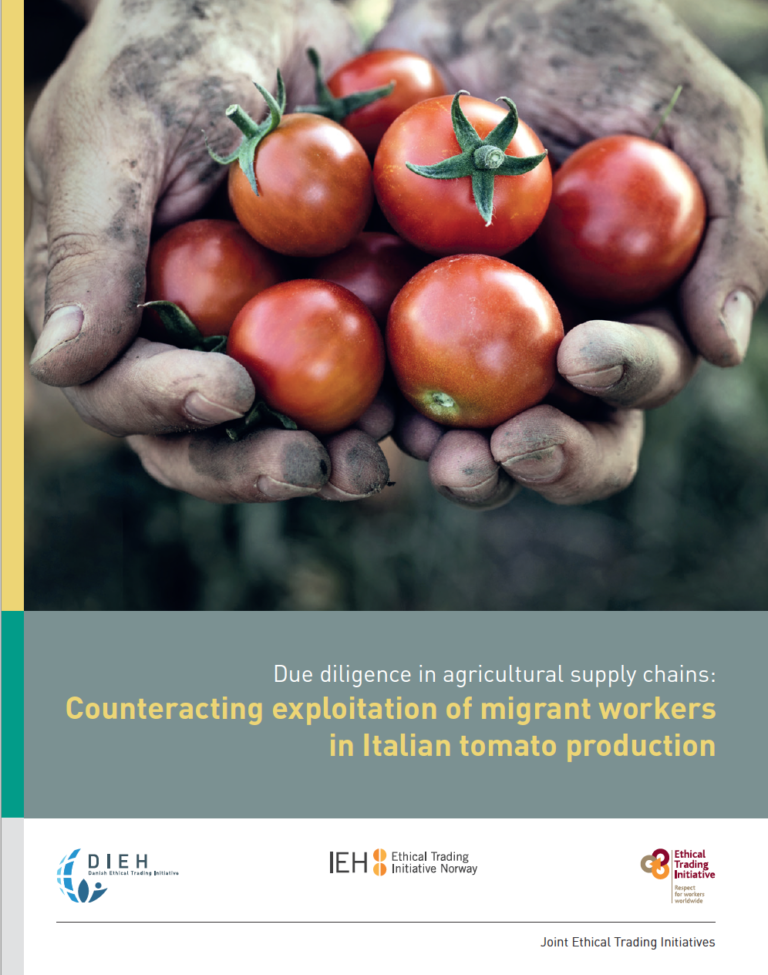This report is written primarily for food retailers that are faced with the challenge of trying to secure decent working conditions in their supply chains in Italy. However, it also aims to be useful for supply chain actors and local stakeholders that wish to eradicate the exploitation of migrant workers. The report may also interest media and members of the general public that are interested in following the progress of this multi-stakeholder project (see section I-4).
The primary focus of this report is tomato products from the South of Italy. However, illegal hiring of migrant labour, especially through middlemen (caporali), is an issue that extends across different agricultural crops, both in Italy and globally. Moreover, legislation, collective bargaining agreements and worker organisation through trade unions apply to the agricultural sector in its entirety. Consequently, many of the observations and recommendations in this report apply to the sector at large.

